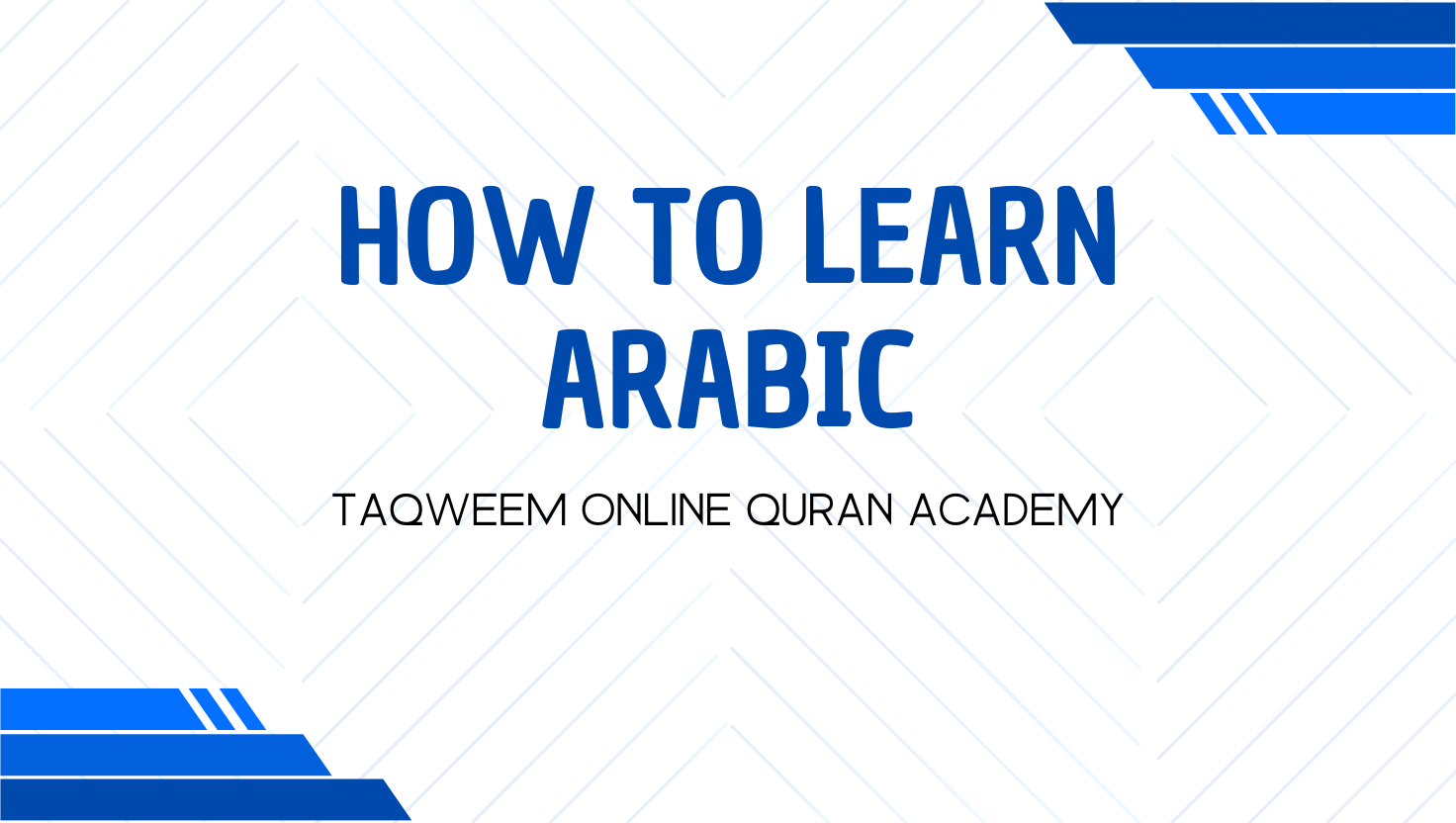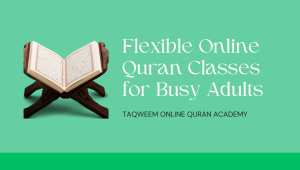Table of Contents
ToggleHow to Learn Arabic Step-by-Step
I still remember the first time I heard the Qur’an recited with proper Tajweed.
It wasn’t just sound.
It felt like the words were reaching somewhere inside me, a place where no human language had ever reached before.
And then it struck me…
This is Arabic. The language Allah chose for His final revelation.
But for years, I treated Arabic as something “too hard” to learn.
Something for scholars, madrasa graduates, or people who had grown up in Arab countries.
I was wrong.
Arabic is not just for a certain group of people — it’s for anyone who truly wants to connect with the Qur’an, to feel the beauty of Salah, and to understand the duas we whisper every day.
Why Learning Arabic Feels Different
You can learn Spanish, French, or Chinese — and you might enjoy traveling or chatting with people in those languages.
But Arabic… it’s different.
It’s the language of Al-Fatiha, the Surah we recite at least 17 times a day.
It’s the language of La ilaha illallah — the sentence that defines our faith.
When you learn Arabic, you’re not just adding a skill to your CV. You are opening a door to the words of Allah, exactly as He revealed them.
The Fear That Stops Many People
I’ve met so many brothers and sisters who say the same thing:
“I wish I could learn Arabic, but I’m too old now.”
Or,
“I’m too busy with work and family. I don’t have time.”
I get it.
Life is busy.
But here’s the thing — Arabic is not about memorizing a thousand grammar rules before you can even understand a verse.
Even a little progress changes your connection with the Qur’an.
When you recognize a single word in Salah… it hits different.
When you understand that Rahman means “The Most Merciful,” and you hear it in Surah Rahman… it melts the heart.

My Simple Roadmap to Learning Arabic
I’m not a scholar. I’m just someone who wanted to taste the Qur’an with my own heart.
And here’s the approach that made Arabic possible for me.
1. Start with the Script
If you can’t read the Arabic script yet, start there.
Even if you learned it as a child but forgot, refresh it.
Think of it like learning to recognize the shapes of treasures.
Once you know the letters, you can begin pronouncing Allah’s words correctly.
2. Learn Common Qur’anic Words
Did you know that around 80% of the Qur’an is made up of just a few hundred words repeated again and again?
If you focus on those, you’ll start understanding verses much faster.
For example:
-
Rabb (Lord)
-
Rahmah (Mercy)
-
Jannah (Paradise)
-
Naar (Hellfire)
-
Sabr (Patience)
Each word you learn makes Salah richer.
3. Listen Daily, Even If You Don’t Understand
I used to play the Qur’an recitation while commuting or cooking.
At first, it felt like background sound.
But slowly, certain words started to “pop out” to me.
It’s like your ear starts recognizing the melody of Allah’s words before your mind fully catches up.
4. Learn Through Salah
This was my secret weapon.
I picked one Surah I already knew — like Surah Al-Ikhlas — and studied its meaning word by word.
Then, every time I recited it in Salah, I reflected on the meaning.
Over time, I replaced “empty recitation” with a heart that felt what I was saying.
5. Find a Teacher Who Cares
This is the game-changer.
You can try self-study for months, but without guidance, it’s easy to get stuck.
A teacher can correct your pronunciation, explain meanings in a way you’ll never forget, and keep you consistent.
And honestly… this is where I wish someone had told me about Taqweem Academy earlier.
Why Taqweem Academy Stands Out
I’ve seen many online Arabic courses, but the thing about Taqweem Academy is that they don’t just “teach” Arabic like a dry subject.
They make it part of your faith journey.
-
Flexible online classes — perfect if you’re busy with work or family.
-
Native and experienced teachers who understand both language and deen.
-
Qur’an-focused learning — you’re not learning random phrases; you’re learning the language of revelation.
Whether you’re a complete beginner or someone who wants to go deeper into Arabic grammar, they guide you step by step — with warmth, patience, and the intention to bring you closer to Allah.
The Beauty You’ll Discover
Arabic opens up moments you never expect.
Like when you read “Wa asbir wa ma sabruka illa billah” (“Be patient, and your patience is only through Allah”) during a time of pain — and it feels like Allah is speaking directly to you.
Or when you hear “Yaa ayyuhalladheena aamanu” (“O you who have believed”) in the Qur’an — and your heart jumps because you know Allah is calling you personally.
This is the reward of learning Arabic.
It’s not about the certificate at the end.
It’s about the day you read Allah’s words and feel no barrier between you and Him.
Start Now — Not “Someday”
I used to wait for the “perfect time” to learn Arabic.
That time never came.
What I learned is… you start where you are. With 10 minutes a day. With one new word. With one small step.
Because every step in this journey is rewarded.
The Prophet ﷺ said:
“The one who is skilled in reciting the Qur’an will be with the noble angels, and the one who stumbles through it and finds it difficult will have double the reward.” (Bukhari and Muslim)
So even your mistakes in learning Arabic are rewarded.
What more motivation do we need?

Final Invitation
If you’ve read this far, your heart already knows — you want to connect with Allah’s words more deeply.
Don’t let another Ramadan, another Salah, pass without understanding the language of the Qur’an.
I genuinely recommend starting with Taqweem Academy.
They make Arabic feel possible, even for busy adults. They’ll guide you gently, with patience and sincerity.
Take that step. Learn the language Allah chose for His final message.
And one day, inshaAllah, you’ll stand in Salah, hear the imam recite, and every word will feel like it’s just for you.
Bismillah. Begin today.
Visit Taqweem Academy and start your Arabic journey — not as a subject, but as a path back to the Qur’an.
FAQs
How do I learn Arabic by myself?
Learn Arabic on your own by starting with the alphabet and pronunciation. Use free Arabic PDFs, mobile apps, and YouTube lessons. Practice speaking, listening, reading, and writing for at least 20 minutes daily. Consistency is the key.
What is 1 to 10 in Arabic?
In Arabic:
1 – واحد (Wahid)
2 – اثنان (Ithnayn)
3 – ثلاثة (Thalatha)
4 – أربعة (Arba’a)
5 – خمسة (Khamsa)
6 – ستة (Sitta)
7 – سبعة (Sab’a)
8 – ثمانية (Thamaniya)
9 – تسعة (Tis’a)
10 – عشرة (Ashara)
Can I learn Arabic in 30 days?
You can learn basic Arabic conversation in 30 days with daily immersion, flashcards, and speaking practice. Full fluency usually takes months or years depending on your study time and environment.
Is it easy to learn Arabic?
Arabic is challenging for beginners due to its script and grammar, but regular practice makes it easier. Start with basic words and phrases, then move to reading and conversation.
What is the best app for learning Arabic?
Popular apps include Duolingo, Quranic, Memrise, and Mondly. They offer interactive lessons, audio pronunciation, and beginner-friendly exercises.
How can I learn Arabic for free?
You can learn Arabic for free through online courses, YouTube lessons, free eBooks, and Islamic websites that offer PDF downloads with translations.
Which Arabic should I learn first?
Start with Modern Standard Arabic (MSA) for reading, writing, and understanding media. Later, you can learn dialects like Egyptian or Gulf Arabic for speaking.
How long does it take to learn Arabic fluently?
For fluency, most learners need 12–24 months with regular study and practice. Immersive learning and daily speaking can speed up progress.






